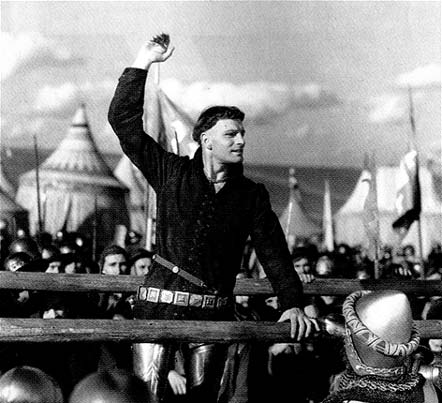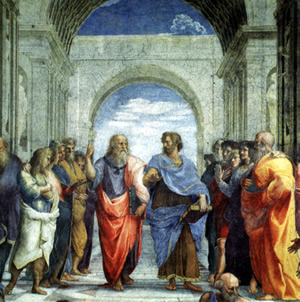 |
| Bouknight and Borowsky (photo by Lilli Ann Linford-Foreman, 11/15/13) |
I've been engaging with this
"Thirty Days of Gratitude" project on Facebook and this morning I wrote about my speech communication colleagues, Doctor Professors
Jon Bouknight and
Justin Borowsky. As I thought about Jon I remembered when we were interviewing for his position.
It was back in the '90s and it was a "shared" position: he was hired to be 1/3 writing and 2/3 speech. Now, fortunately for us, he's all speech all the time!
Like all hiring events, this one had messy fallout, including lots of rude things said about me (as speech-com program director) by one of the part-timers who didn't make it into the interview step of the hiring process. (I had the scuttlebutt reported to me by students who heard me being badmouthed.) In spite of the annoyance of being thought a demonic bitch by people I work beside, I think it's important to hire new tenure track people based on background, knowledge, and performance during the interview process and not on years spent already at the institution. (Longevity, in other words, is no proof of excellent performance, as everyone would know if I continued teaching after this coming spring.)
The year we hired Jon it wasn't a big pool. (Unlike the year we hired Justin -- I believe that I weeded through about eighty files before sending on something like sixty to the rest of the committee.) Two of the guys who came to interview (and they were all guys that year) were pretty lame. Because they will not be recognizable and no one remembers that far back, I'll tell you a bit about them.
Although all three candidates looked good on paper, the other two turned out to be so very wrong for COCC. Both of them had a "sage on the stage" teaching methodology and gave lectures during their teaching performance. Thus, they weren't a good fit for our programs. Even then, COCC cultivated interactive, discussion-oriented classrooms - the "guide by the side" method. Not only did they not fit in with the institutional pedagogical values, both of them also "sank" themselves when they were "offstage" at lunch and dinner.
One interviewee was a tall fellow who looked a bit like the poet
Mark Strand. When the Department Dhair and I took him to dinner, he talked incessantly about water skiing and himself and how wonderful he was at all outdoor sports. Even though the Chair and I tried to introduce other topics of conversation, he went on and on about his great athletic abilities, not noticing the eye rolls the people accompanying him were throwing at each other. He clearly wasn't interested enough in the job to figure out that the interview process didn't end when he left the campus.
The other gentleman, in appearance a bit more like
Peter Lorre, was far too honest when I took him to lunch. I remember that as we drove from the school to downtown, he said, "I hope you choose me. You're my last chance. Every other place I've interviewed has rejected me." I was so stunned that someone who taught writing and speech knew so little about interviewing that he actually spoke those words. Out. Loud.
I wanted to say to him, "Do you realize that you just spoke your fear and self-loathing audibly?"
And then, at lunch, he went on and on about theoreticians it became clear he didn't really understand but who he wanted to name drop: Foucault, Derrida, etc. Now, like anyone who had been through a left-leaning graduate program in the 80s, I understood those names and the ideological position he was trying to establish. And I also knew they and it had VERY little to do with community college communication instruction.
Thank the Powers-That-Be that Jon was on our interview list! I didn't know until VERY recently (over a decade and a half after his hire) that he almost didn't apply to COCC. It was spur of the moment! His friend
Doug Nelson, also ex-Clatsop, told him to apply. He gave a great interview but it was his teaching demonstration that really sold us -- an activity involving students writing descriptions of a burglar and the rest of the class deciding which description (the one with lots of detail or the one with almost none) seemed more believable. It was a wonderful performance.
And, of course, it didn't hurt that when I was taking him to lunch he said, "Was that
piece you published in Critical Studies in Mass Communication a part of your doctoral dissertation?" Yes, I recognized it as flattery but it was appropriate flattery -- at a job interview one is
supposed to show knowledge of the folks one meets and of the institution. So I chatted with him while giving him a mental point for knowing how to
work it.
My assumption about all job interviewees is that they will do their homework and figure out the rules for doing job interviews. For folks who teach communication or want to, that expectation is multiplied to infinity.

















